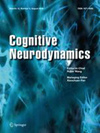投稿信息
稿件收录要求
Cognitive Neurodynamics provides a unique forum of communication and cooperation for scientists and engineers working in the field of cognitive neurodynamics, intelligent science and applications, bridging the gap between theory and application, without any preference for pure theoretical, experimental or computational models.
The emphasis is to publish original models of cognitive neurodynamics, novel computational theories and experimental results. In particular, intelligent science inspired by cognitive neuroscience and neurodynamics is also very welcome.
The scope of Cognitive Neurodynamics covers cognitive neuroscience, neural computation based on dynamics, computer science, intelligent science as well as their interdisciplinary applications in the natural and engineering sciences. Papers that are appropriate for non-specialist readers are encouraged.
1. There is no page limit for manuscripts submitted to Cognitive Neurodynamics. Research papers should clearly represent an important advance of especially broad interest to researchers and technologists in neuroscience, biophysics, BCI, neural computer and intelligent robotics.
2. Cognitive Neurodynamics also welcomes brief communications: short papers reporting results that are of genuinely broad interest but that for one reason and another do not make a sufficiently complete story to justify a full article publication. Brief Communications should consist of approximately four manuscript pages.
3. Cognitive Neurodynamics publishes review articles in which a specific field is reviewed through an exhaustive literature survey. There are no restrictions on the number of pages. Review articles are usually invited, but submitted reviews will also be considered.
- Editor-in-Chief
-
- Rubin Wang
- Managing Editor
-
- Xiaochuan Pan
- Publishing model
- Hybrid. Open Access options available





